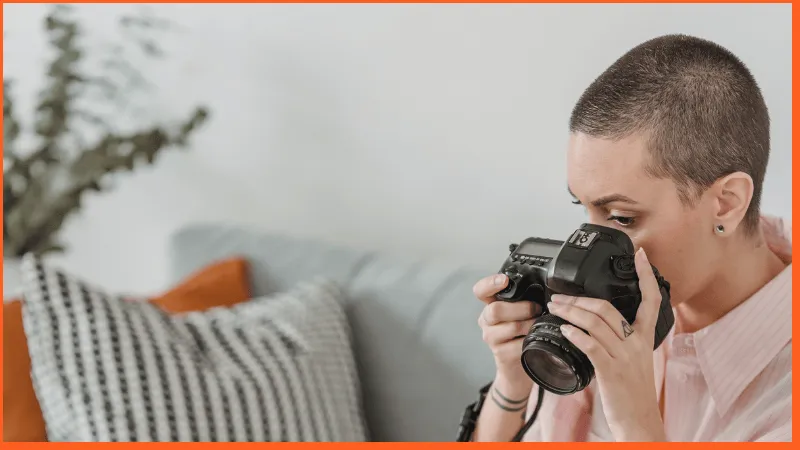I love to learn and explore different topics that interest me. Still, when people think of learning, the first thought is often sitting in a classroom or library cramming for an exam.
Can that actually be a hobby?
This article will explore why learning can be a fantastic hobby that is more than burying your head in a textbook.
Here’s why learning is a hobby:
A hobby counts as any activity that you do outside of your occupation for enjoyment. Learning is so much more than cramming for math or science classes that you might not be interested in. Learning happens every day as you get better at completing different tasks. Focusing on improving and learning in several areas is a fantastic hobby to have. You can learn about various topics, be it specific interests, creativity, social elements, or even physical activities (like ping pong or gardening).
Table of Contents

Hobbies are generally defined as enjoyable activities to pass the time. Learning, on the other hand, is to collect knowledge, skills, and understanding.
That said, what better hobby is there than to spend time learning about different things and concepts?
By making learning into a hobby, you don’t limit yourself to just one hobby or activity. In fact, the more things you learn about, the better! You’re not just restricted to learning about what interests you either — you can even learn about other things precisely to develop new interests.
There’s a big advantage to making learning your very own hobby. For one thing, not only can you have multiple hobbies, but you’ll learn about them better and faster. You can even apply the knowledge, skills, and understanding you’ve gained in your everyday life or job.
Learning as a hobby also broadens your horizons. This helps you make more informed decisions, and you won’t get fooled easily. With this, you’ll be less afraid to explore new things, new places, and new people.
Since learning is your hobby, being inquisitive will eventually become second nature. These questions can then lead you to further discoveries you’ll find helpful.
What are some great things to learn as a hobby?
The number of hobbies you can learn is almost endless, so it’s pretty much impossible to list them all down. To keep things a little more organized, you can think about hobbies using three categories: social hobbies, physical and health hobbies, and creating and creative hobbies.
Social Hobbies
Social hobbies help improve the social aspects of your life. In a nutshell, these hobbies help you connect with other people and even make friends.
While you can say that all hobbies can potentially connect you with others, social hobbies tend to focus mainly on activities that involve speaking or communication. Some examples of social hobbies include:
- Learning a new language
- Learning about storytelling
- Learning public speaking
- Learning comedy
Physical and Health Hobbies
Physical and health hobbies help improve your health and fitness. These often involve physical activities, though they’re not always along the lines of exercising. Some examples of physical and health hobbies are:
- Physical fitness activities like weight lifting, aerobics, yoga, cycling, etc.
- Cooking (though you don’t always have to cook something healthy)
- Gardening
- Sports like karate, basketball, ping pong, swimming, etc.
- Meditation
Creating and Creative Hobbies
Creative hobbies encourage you to exercise your imagination. Many creative activities involve artistic pursuits but are not entirely limited to them. Some examples of creative hobbies include:
- Writing
- Playing a musical instrument or composing music
- Drawing
- Knitting
- Crafting
- Upcycling or repurposing an old item into a new one
- Painting
- Woodworking
- Sculpting
A great plan to start with is to choose a single hobby from each of the three categories mentioned above.
This will improve your skills in all of these vital areas. Improving in these areas will allow you to become well-rounded and can enhance the quality of your life!

What are the best ways to learn a hobby?
There are just as many ways to learn a hobby as there are hobbies themselves. While you have various choices in this regard, here are five strategies you can consider if you want to learn any hobby effectively:
Actually Doing the Activity
Learning a hobby isn’t just about theory. You also need to apply your knowledge. You can do this by actually doing the activity yourself.
For instance, you can’t make playing a musical instrument a hobby if you don’t actually pick up the instrument and play it. You can read all about the instrument and how to use it, but if you don’t actually use it, you aren’t actually learning how to play it.
This strategy seems so obvious at first, but it’s incredibly important. We often get excited about a hobby and try it out for a bit, but then when we look for ways to get better, we can get stuck in an endless research phase.
Researching and gathering information is important, still, don’t forget to actually do the activity!
Joining a Community
Some hobbies can be learned alone, while others are best learned with a group. A hobby commonly learned best within groups are sports or fitness activities. However, this also applies to other less physical hobbies such as drawing.
Joining a community can be an effective way to learn about a particular hobby since you’ll be able to get other people’s insights. They can also offer advice and provide additional learning materials.
You can join a community by finding like-minded people or connecting with a club, organization, or even a small group.
In the digital space, forums, message boards, or social media can help you build a network with other hobbyists.
Studying the Topic
Hobbies like playing chess or even cooking require some form of study. Before you can enjoy doing certain hobbies, you first need to familiarize yourself with how they’re actually done.
Studying a topic can mean reading, watching, or listening to any materials related to that hobby. Looking for tutorials online or offline also helps. You can even take courses that can teach you how to do a specific hobby.
Today this is easier and cheaper than ever. There are podcasts, youtube channels, blogs, courses (free & paid), and more, covering most hobbies and topics. It’s all at your fingertips with a simple online search.
These methods don’t just help you learn, but you can also gain a better appreciation for the hobby you’re studying.
Finding a Coach or Mentor
Finding a coach who can teach you doesn’t only apply to when you’re taking up sports as a hobby. It can apply to any hobby you have, whether those are social, physical, or creative.
After all, mentors can give you valuable insights and guidance, which can help you understand a hobby even more.
Mentors have a wealth of knowledge to share, allowing you to learn secrets or techniques that are otherwise unknown to others. A coach or a mentor can even help you master a hobby faster as opposed to self-studying.
Many coaches or mentors offer their teaching or consulting services locally. Otherwise, most experts nowadays share their expertise in the form of a book, documentary, podcast, youtube channel, or a course.
Find an expert in your field of interest and study how they get better at their craft.
Teaching
Once you’ve advanced in learning about a hobby, one way you can continue learning is by teaching others. Imparting your knowledge means occasionally going back to basics, which can lead you to discover more things you haven’t known about a particular hobby.
Teaching others also allows you to learn from others.
After all, mentors and coaches aren’t the only sources of knowledge. Even students can teach you something new just as long as you remain open to learning.
Don’t Stop Learning
Learning isn’t all about academics. It isn’t confined to your school’s campus either. There’s so much about the world you can learn that turning this into your hobby might even bring you to outer space one day.
The critical thing to remember when taking up learning as a hobby is never to stop. There’s an opportunity to learn anything, anywhere. All you need to do is open your mind to the possibility.
Also Frequently Asked Questions:
Is Learning a skill?
Yes, learning is definitely a skill you can improve. In this article, we explored precisely why it is a skill and not just an ability. It explains five examples of learning skills and how to improve the skill that is learning.
Can I Mention “learning new things” as a hobby on my resume?
Yes, you can do this, but there’s a good strategy you can apply. Simply putting “learning new things” in your resume can be a little vague. This won’t put you in a favorable position with your potential employer.
This is because resumes with a “Hobbies and Interests” section are often included by those who don’t have ample work experience. Young or inexperienced applicants use the “Hobbies” section as a way to buff up their resumes.
Try to avoid this if you have had previous working experience.
Instead, what you can do is rephrase “learning new things” and place it under your resume’s Skills section. A statement you can use is “mastery of different topics” or “capacity for diverse subject analysis.”
Also, try to be more specific. Are there any topics you recently learned that could benefit your potential employer? If so, mention these things specifically.
An employee who can quickly and easily learn new things is unquestionably favorable to any employer. As with every resume, you need to package yourself in a manner that sounds professional.
In this case, you might want to learn about making resumes sound professional as a hobby!




